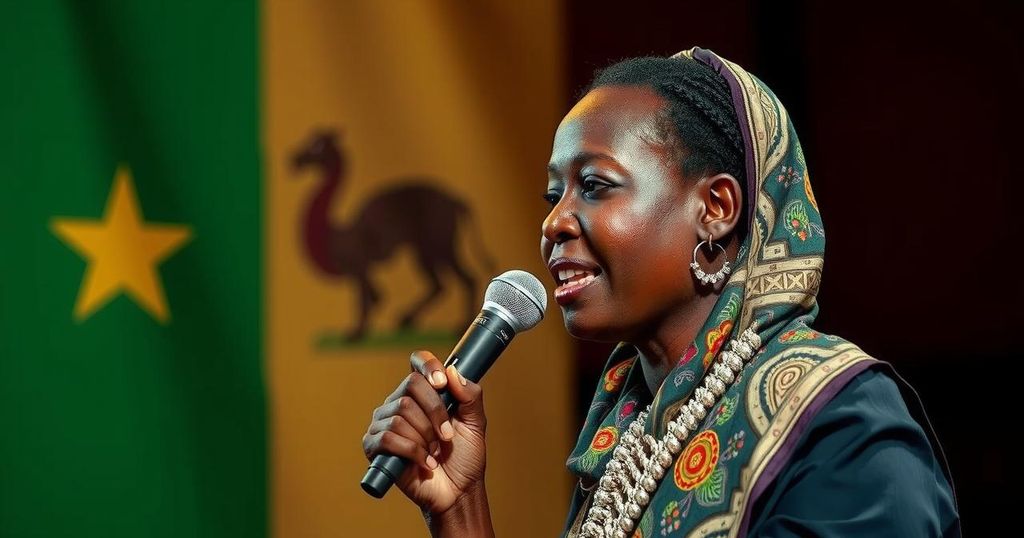Namibia’s Historic Presidential Election: The Opportunity for a Female Leader

Namibia is conducting a presidential election, featuring Netumbo Nandi-Ndaitwah as a strong candidate to become the nation’s first female leader. Managing challenges like high unemployment, particularly among the youth, SWAPO faces increasing scrutiny. Registered voters include about 1.4 million citizens, and if no candidate earns a majority of the votes, a runoff election will be initiated.
Namibia is currently engaged in a pivotal presidential election where a significant milestone could be achieved with the potential election of its first female leader, Netumbo Nandi-Ndaitwah. At 72 years old, Nandi-Ndaitwah, who has a history tied to Namibia’s independence movement in the 1970s, is the leading candidate representing the ruling SWAPO party. Despite SWAPO’s long-standing governance since independence in 1990, it is confronted with rising discontent rooted in high unemployment rates and economic struggles, particularly impacting the country’s youth.
As the electoral process unfolds, the recent trend of political shifts in southern Africa casts a shadow over SWAPO’s long-held position. In light of significant electoral upsets in neighboring nations such as South Africa, Botswana, and Mauritius this year, the local political landscape appears increasingly volatile. About 1.4 million Namibians, nearly half of the country’s population, are registered to vote, which includes decisions on parliamentary representation alongside the presidential election. Should no candidate secure 50% of the votes, a runoff election will follow, a scenario not yet witnessed in Namibia’s electoral history.
Following the death of President Hage Geingob in February, Vice President Nangolo Mbumba assumed the presidency. Nandi-Ndaitwah brings forth promises of reducing the youth unemployment rate, currently standing at 20%, through initiatives to create significant job opportunities, though some critics deem her plans overly ambitious. Furthermore, pertinent issues such as women’s rights and health care are anticipated to play crucial roles in shaping voter preferences, reflecting the desires of a nation grappling with a sparse population and expansive geographic landscapes.
The political climate in Namibia is entering a transformative phase as citizens head to the polls with aspirations for significant leadership change. Netumbo Nandi-Ndaitwah’s candidature marks a substantial moment not only for gender representation but also for SWAPO, facing mounting challenges after decades of continuous governance. The recent trends in regional politics serve as a backdrop, indicating a possible shift in the expectations and demands of the electorate. Furthermore, issues surrounding economic hardship, particularly affecting young Namibians, have become critical components of the electoral discourse, influencing candidate platforms and voter sentiment.
In summary, the electoral prospects of Namibia hold significant implications for the nation’s future, particularly with the candidacy of Netumbo Nandi-Ndaitwah as the first potential female leader. As voters reflect on the promises of job creation and crucial social issues, the dynamics within SWAPO and Namibian society underscore a burgeoning desire for accountability and reform. The outcome of this election could potentially mark a pivotal shift in leadership and a response to the aspirations of its citizens, especially the youth.
Original Source: abcnews.go.com






